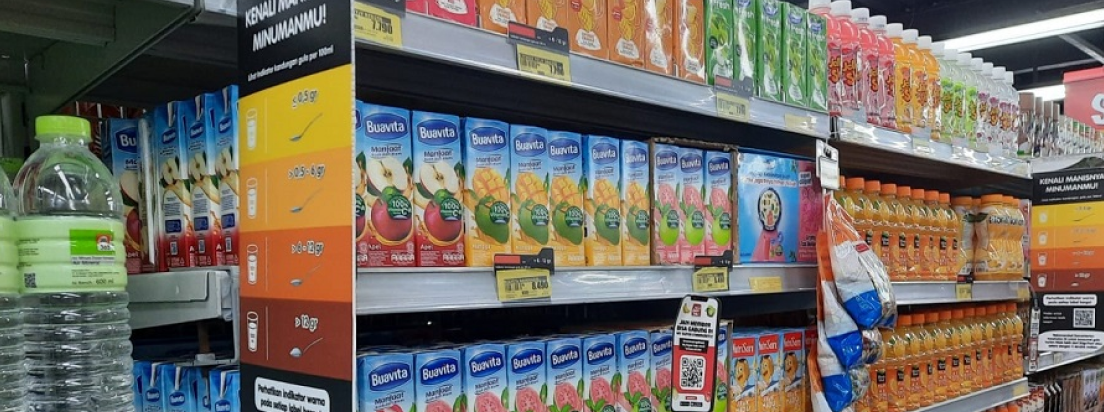Indonesia's New Health Regulations: Impact on Public Health and the F&B Industry

In a significant step towards improving public health and enhancing the health industry, the government has enacted Government Regulation No. 28 of 2024 (Peraturan Pemerintah), which introduces comprehensive measures to address the nation's health challenges. This policy imposes restrictions on advertisements, particularly affecting the processed food and fast-food sectors, which often exceed the maximum limits for certain ingredients. The regulation will not only impact the health sector but also have a ripple effect across various industries.
While there is ongoing discussion and concern about the potential introduction of excise taxes on processed foods, which could impact pricing and consumption, this idea remains contested. Some ministry officials argue that implementing excise taxes on processed foods might not be effective and requires further examination before any decision is made. Although excise taxes have not yet been implemented due to ongoing debates among ministries, the possibility remains. Currently, the regulations dictate that any party involved in the production, import, or distribution of processed foods, including ready-to-eat products that exceed specified limits, is prohibited from advertising, promoting, or sponsoring activities targeted at specific times, locations, or demographic groups. This measure aims to reduce the consumption of unhealthy food options by limiting their exposure and appeal.
The reason behind these promotional restrictions is deeply rooted in Indonesia's broader public health concerns, particularly the alarming rise in diabetes cases. The GlobalData Consumer Survey (2021) shows that Indonesia has the highest consumption rate of sugary packaged beverages in the Asia-Pacific region. This preference for sugary drinks has resulted in a dramatic increase in diabetes cases, with children being affected at a rate 70 times higher than before. Diabetes is a major contributor to various serious health conditions such as heart disease, cancer, stroke, and kidney failure. These conditions collectively cost the National Health Insurance (JKN) program a staggering 21 trillion rupiah in 2022. The surge in diabetes cases has prompted the government to rethink their approach to limiting sugar consumption in Indonesian society. By curbing the promotion of unhealthy foods, the regulation aims to address this pressing health issue, ultimately reducing the burden of non-communicable diseases (NCDs) and fostering a healthier population.
The government has taken this matter seriously by enacting regulations that include stringent sanctions. These sanctions range from written warnings to product recalls and even the revocation of business licenses. Additionally, the House of Representatives has established a Working Committee (Panja) for the Supervision of Processed Foods and Ready-to-Eat Products with Sugar, Salt, and Fat Content. This multi-tiered enforcement approach underscores the government's commitment to upholding public health standards and holding companies accountable.

Implications for the Food and Beverage Industry
The new regulation presents a significant challenge for the processed food and fast-food industries, which rely heavily on marketing strategies to attract and retain consumers. Companies producing products with elevated levels of sugar, salt, and fat will need to develop broader strategies to comply with the new standards without negatively impacting their marketing efforts. This includes rethinking advertising campaigns, promotional activities, and sponsorships to align with the regulations. Additionally, companies may need to reformulate their products to meet the n ew health standards, which involves modifying ingredient compositions to reduce sugar, salt, and fat content while striving to maintain the flavor, texture, and overall appeal of their products. This transition will require a significant investment in research and development, as well as adjustments to production processes, ensuring they comply with regulations while maintaining their market presence.
While the change could be costly, the industries also need to prepare for the potential implementation of excise taxes on sugary products. The government is still in discussion about this regulation, and it could be enacted at any time. Companies must ensure they can meet these requirements before the regulations become more stringent. This preparation involves evaluating their current product formulations, improving compliance mechanisms, and developing strategies to absorb or mitigate the financial impact of the potential excise taxes. Proactive measures now will help companies adapt more smoothly if the new tax regulations are implemented, preventing further disruptions and ensuring continued market stability.
The evolving regulatory landscape in Indonesia, marked by stringent measures to curb the promotion of unhealthy foods and the potential introduction of excise taxes on sugary products, presents both challenges and opportunities for the food and beverage industry. As the government intensifies its efforts to address public health concerns, particularly the alarming rise in diabetes and related health conditions, businesses must navigate these changes carefully. By proactively reassessing their marketing strategies, reformulating products, and preparing for possible excise taxes, companies can not only ensure compliance but also contribute to the broader goal of fostering a healthier population. While the transition may be costly and complex, it offers a pivotal chance for the industry to innovate and align with global health standards. Ultimately, the collaborative effort between the government, industry players, and the public will be crucial in shaping a healthier future for Indonesia.
Compliance with this regulation presents a unique set of challenges, from revising marketing strategies to reformulating products to meet health standards. Deconid, a leading consultancy firm specializing in regulatory compliance, offers expert guidance to help businesses navigate these complex requirements. We assist manufacturers, importers, and distributors in understanding the implications of the new regulations and developing compliant marketing strategies.
For more information, please visit our website at deconid.com or contact us at [email protected].